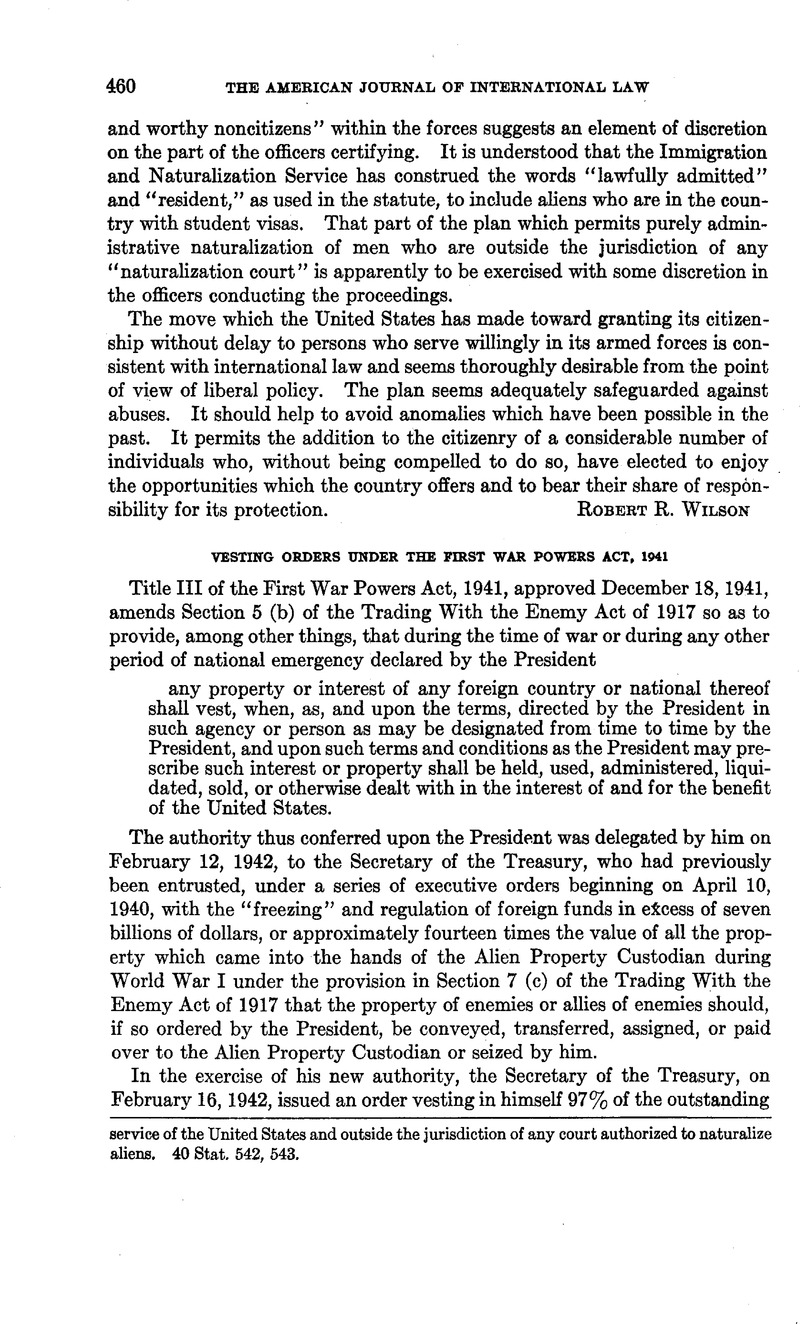Article contents
Vesting Orders Under the First War Powers Act, 1941
Published online by Cambridge University Press: 12 April 2017
Abstract

- Type
- Editorial Comment
- Information
- Copyright
- Copyright © American Society of International Law 1942
References
1 The designation of foreign countries in the order of April 10, 1940, as amended up to December 26, 1941, included every country on the European Continent with the exception of Turkey. It also included China, Japan, Thailand and Hongkong. The Union of Soviet Socialist Republics was relieved of the freezing restrictions upon its entry into the war.British and American territories occupied by the Japanese were added to the list of “blockedcountries” after our entry into the war.
2 Russian Volunteer Fleet v. United States, 282 U. S. 481.
3 “Expropriation of Foreign Property”, Vol. 35 (1941), 243, 252.
4 Borchard, Diplomatic Protection of Citizens Abroad, p. 256.
5 Ibid., p. 257, citing Hardman (Great Britain) v. U. S., this Journal, Vol. 7 (1913),879, in which it was held that “necessary acts of war do not imply the belligerent’s legal obligation to compensate” but that “there is, nevertheless, a certain humanitary conduct generally followed by nations to compensate the private war losses as a matter purely of grace and favor.”
6 Ibid., p. 258, citing Respublica v. Sparhawk (1788), 1 Dallas 357, 362, and Final Report of Spanish Treaty Claims Commission, May 2, 1910, p. 12.
7 Ibid., p. 265.
8 44 Stat. 2132, 2379, 2441; 45 Stat. 2641; 47 Stat. 2135; 48 Stat. 1507; 49 Stat. 2659.
9 Russian Volunteer Fleet v. United States, supra.
10 Compare Borchard, op. cit., p. 100; Cowles, Treaties and Constitutional Law, Property Interferences and Due Process of Law, p. 2.
- 1
- Cited by


